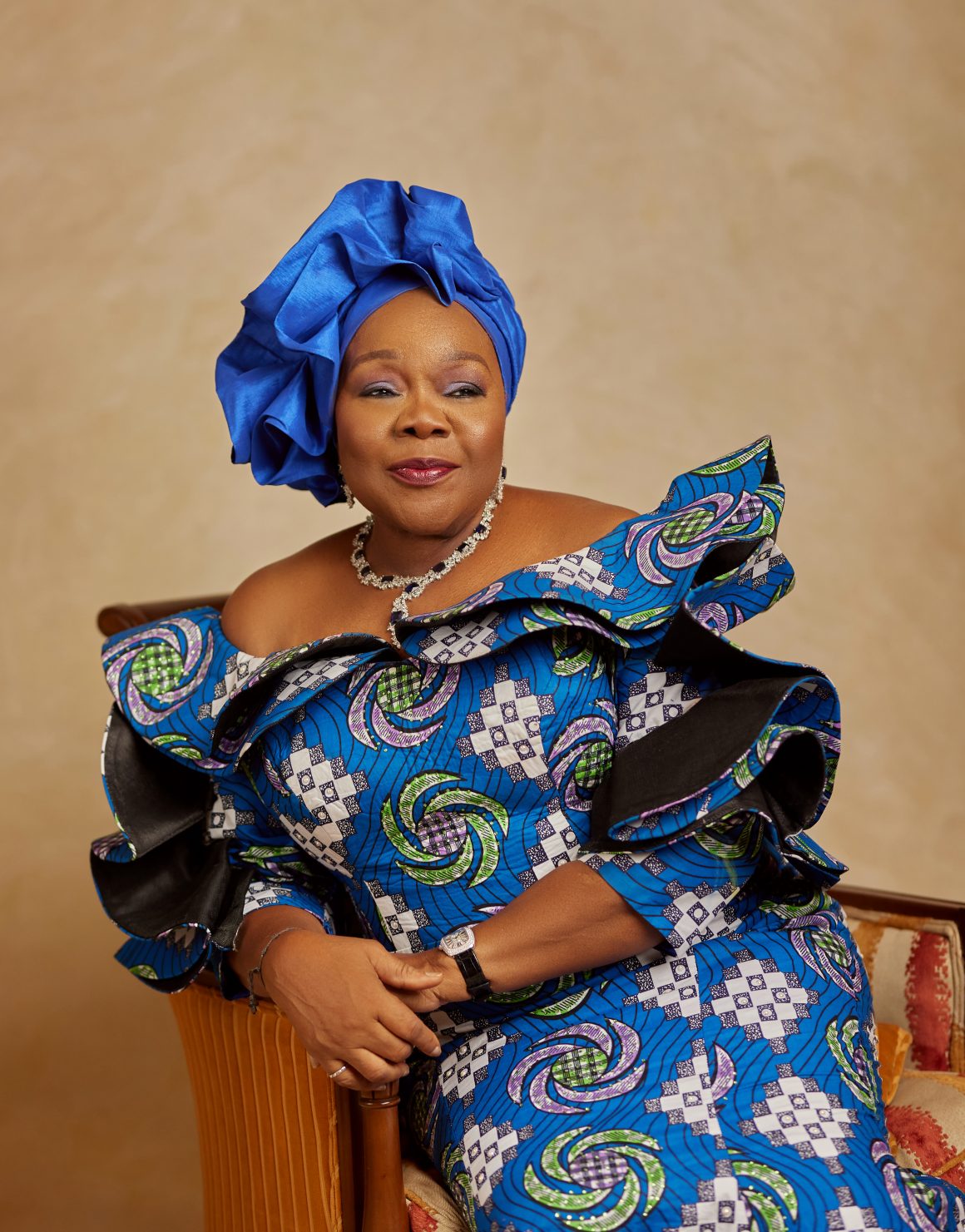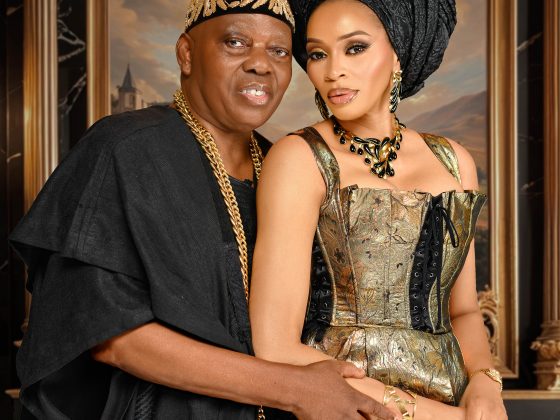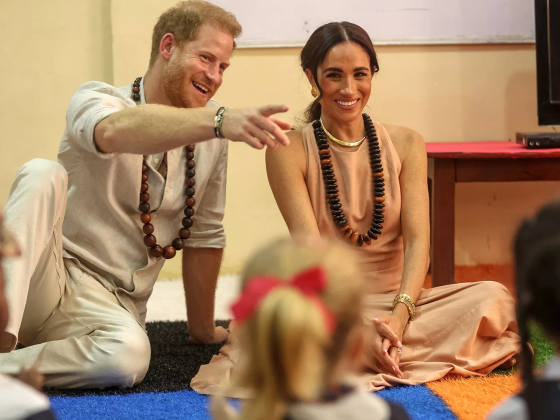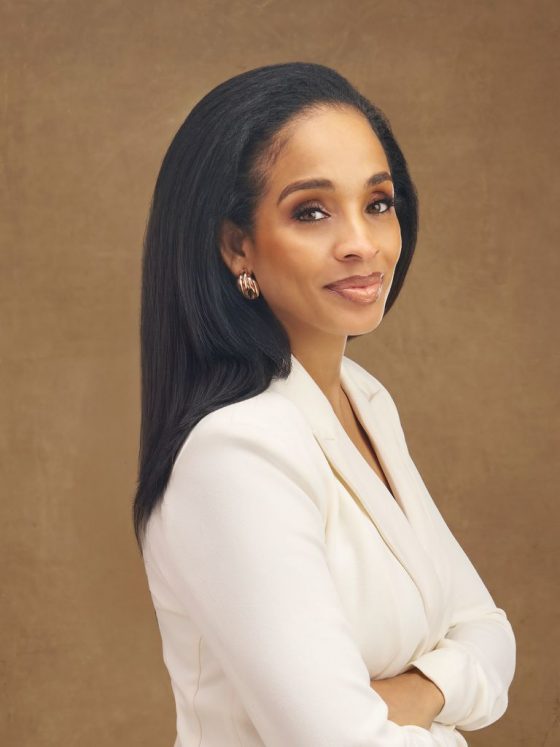You were recently installed or invested as the 4th president of the Cosmopolitan Women Club (COSMO). What is the Cosmopolitan Women’s Club about, and what is it meant to achieve?
The Cosmopolitan Women’s Club is a club for older women. You can only join after you’re 50, and you can’t join after 70. So, it’s a club for older women who have already given a lot of service and paid their dues in their time, but at the same time, are willing to continue to give their best, to serve and to pay back, giving back to society. To develop the younger ones, mentor them, upgrade, upgrade, upskill, and be there for women with development issues. And, of course, the sorority being there for each other as well as the elderly ones because we have quite a lot of older ones in the club. We have a nonagenarian, the one and only Shade Thomas Fahm; she will be 91 in September. We also have Iya Oge of Lagos Chief Opral Benson; she will be 90 next year. So, we are there to make them feel remembered, be part of the club, and draw from their spring of experience as younger people, even though we are old but not as old as they are.
What have the women of COSMO been able to achieve as a club or as a sorority over the years?
As a club, our byline is solidarity and friendship for development. And that development is what we stand for. We’re not feminists, but we’ll say we are for women’s development. We have held conferences and workshops and have been advocacy voices; we were part of the Bring Back Our Girls (BBOG) movement and one of the champions of BBOG. We have held town halls with governors to discuss women’s development in the state. We’ve worked and helped women in prisons because we have a few legal people in our midst, like the former attorney general of Lagos; she’s a member, and the current immediate past one is also a member. We also help young, disabled girls who are brilliant but are not able to afford school fees. We work in close connection with Pacelli School of the Blind and Partially Sighted. Though it’s not much right now, we are helping three students through school. Two are in tertiary, and we have been helping them with school fees for the last few years. And then one who is already in university now has a scholarship.
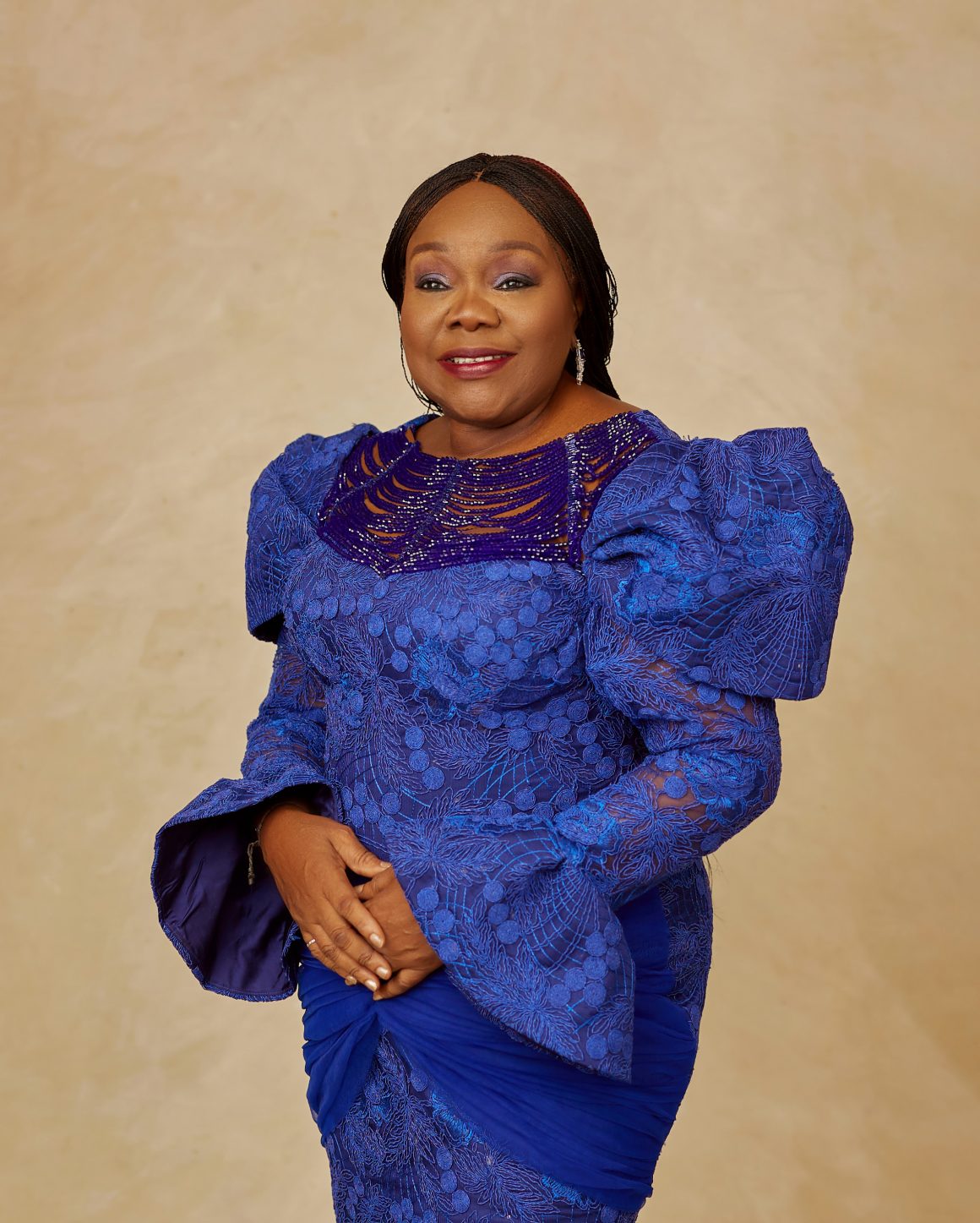
So, during your tenure as president, what do you propose to do to ensure your tenure is different and your impact is felt?
That’s why I have an overarching theme. My overarching theme is validating purpose, upskilling and upscaling, and advocacy for development through social impact projects. This is an overarching theme because, in the next few years, I can fit in anything I wish to do to impact lives into it. Like food banks, you know what it is like nowadays to be able to afford meals. So, we are going to look at that; we will look at vocational skills, upscaling, and helping. We will look at the promotion of buying and wearing Nigerian because, in our midst, we have Shade Thomas-Fahm, who was the first woman to do ready-to-wear Nigerian fashion. Then she’s also started FADAN, as well as Iya Oge. For us, it’s a legacy we hope to continue. If it had been continued from when they started, it would have impacted the economy more than we are trying to do now. Buy, sell, wear, Nigeria, which is where we are going again. We are going to try to see if we can work with Queen Ronke Ademuluyi-Ogunwusi, founder of the London Fashion Week, to promote adire, taking it back from the hands of the Chinese and bringing it back to source. We want to help the elderly because we think there is a societal gap for them. They have been a bit neglected, but not wilfully, but we believe that we could have a flagship home for the elderly just the way they have abroad because there are no standard homes for the elderly, though there are a few people who are doing it privately, but it’s not the way they would love it to be. They want to do better; they want to upscale. We want to see how we can partner with them, call the government’s attention to these issues, and improve things for older people.
Let me interject at this point: You are doing great things for women. But why aren’t you allowing women of all age groups to get involved and be a part of society?
It’s not me. That’s how I met it.
But why does the club have a certain age bracket? Because this is good work that every woman of all ages should be a part of. Why do you think the club was structured that way?
I wasn’t among the founding members of the club so that I wouldn’t know. But I believe it’s because they knew that there was a lot out there for the younger women that’s been done. And you can fit into many societies without a problem. They were thinking of what those at our level could do and did very well, and they handed down their legacy to the younger ones who were also coming behind us. That’s what I believe, and that’s what I think. But it’s not like we have not thought about it. It was brought up recently when we had a retreat, and some people mentioned we bring down the age limit to 45 so that more people can join. Also, at the last investiture, many invited women kept saying they were not yet 50 and would like to join the club, which means it has been thrown back at us. It now beckons on us to introspect and see whether it can be changed. I’m not saying it will be changed, but it keeps coming up; you have also registered it; others have said it.
As the newly elected president, is it something you want to change or can change?
I’m just one voice; one tree does not make a forest.
But you can set the ball rolling, yes?
We have set quite a few balls rolling. We don’t know whether this will catch, so I can’t tell you that it will happen because we met when we joined, and it’s a huge constitutional change for the club. It will take more than just me saying it for it to happen. It’s a mind shift; a lot has to be done for it to happen. People have to agree to agree, and if it makes everybody happy, then there’s nothing anybody can do about it.
Though your tenure just began and you have a couple of years ahead of you, tell us, when you leave as president, what do you want to be remembered for?
I want to be remembered for having touched lives, touched many lives positively, and been impactful. Impact in the sense that I have added value to that person and validated their creation’s purpose. Because if I don’t validate that purpose, I’ve not validated my purpose, and I’ve not impacted any life positively. If you look at what I did at the International Women’s Society, I can’t say I can replicate that now, but when I was President of the International Women’s Society for one year only, I got the skill centre in Lekki, where we train people now, up and running. It used to be a decrepit NRC or SDP secretariat. We got it from the government; the Marwa government allocated it to us; we brought it up to speed, and now it is not only a skill centre but the International Women’s Society headquarters. In the last 20 years, we have trained over 1000 graduates. That is the impact I hope to make as President of COSMO, and I hope I will be remembered for it.
You are involved in many women’s groups, from the IWS to the National Council Women’s Society. Let’s discuss the National Council of Women’s Society. What is it about, and how did you get involved?
National Council, that’s the mother of all societies, the umbrella of Nigerian women, supposedly. The National Council of Women Society was founded many years ago. I am not sure how long ago, but it was post-independence, a little after independence when it was established. It started here in the West by some prominent women whose names can be found at the National Council of Women Society house at Idowu Taylor in Victoria Island. I joined the council in the late 1980s. I joined as a young lady in my late 20s. I joined, and I met people like the late Justice Ifeyinwa Nzeako, who was the president at the time; I met the late Mrs. Hilda Adefarasin; and also, the late Mrs. Emily Aig-Imoukhuede; those were the presidents who came as younger people to take charge of the council.
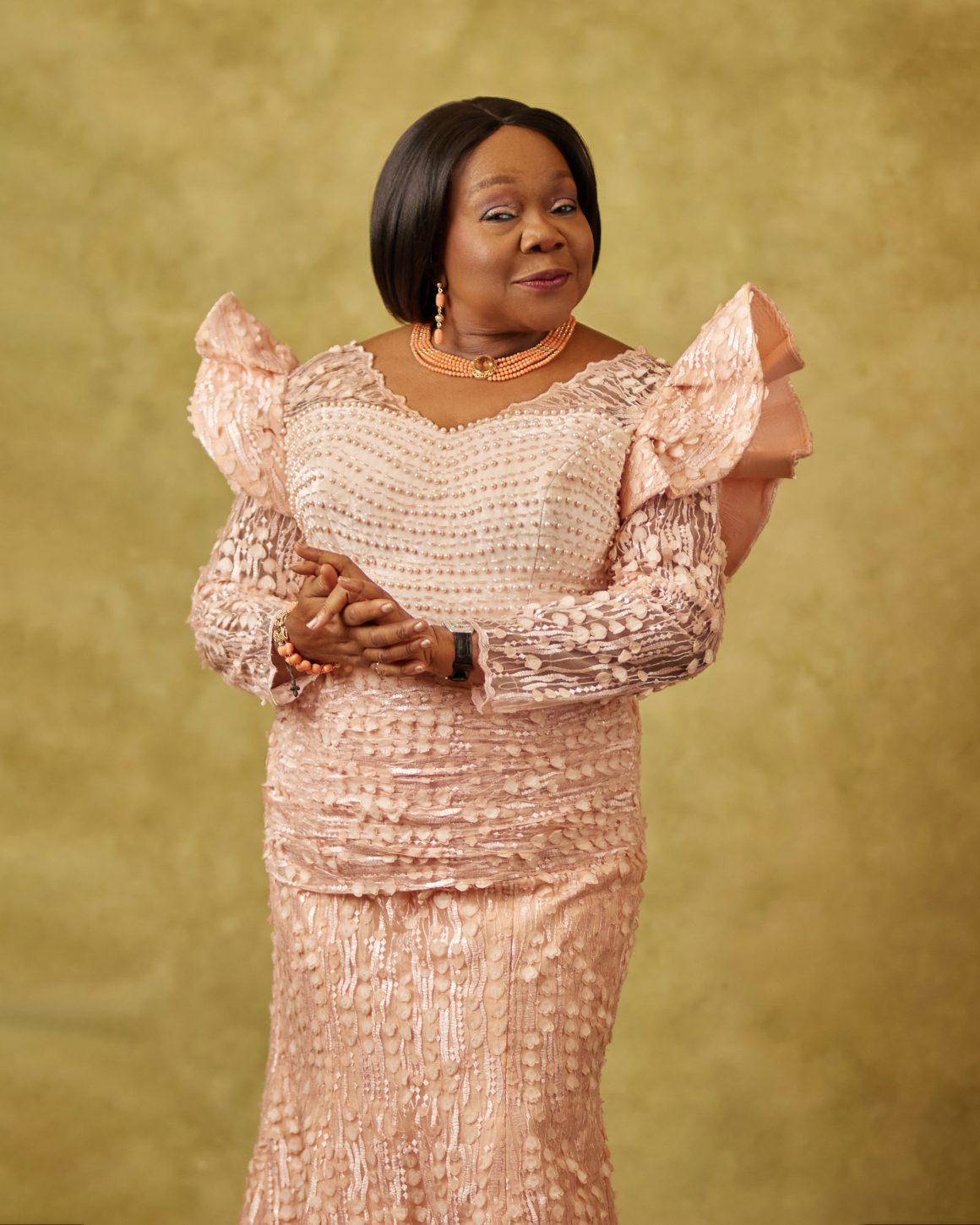
The council is an umbrella for every society of women in Nigeria, so we come together in one voice to speak for Nigerian women, even though we all have different societies. That aside, the council also had individuals, not really individuals as such, but members that are committed to certain causes, standing on committees in the council, where that committee and the societies that form it can co-opt other members to be a part of, who can also add value to that society. I got involved with the council by being co-opted into one of those standing international relations committees because I could speak French. And I was co-opted into that committee by the late Mrs. Ajayi-Okunuga, a justice who was working there, who saw my ability to speak French as a value to the international relations committee, and that’s how I started with the National Council of Women Society. Apart from the fact that I had been in the International Women’s Society and my late mother-in-law, an English woman, Mrs. Irene Fatai-Williams, had been part of International Women Society, she had been part of Lagos women’s dining club those days, and so many of those clubs, she used to drag me to join them. Back then, when you were young and could work hard, older women liked you because you could run around and do this and that. So, at the end of the day, I found myself fully integrated into the council. Then, I joined the Lagos Council as well. I became very involved and was one of the youngest members to follow them to the centenary in New York to celebrate 100 years of the women’s suffrage movement. So, after that, it just went on and on from there. I became involved in the International Council of Women because our president then at the time, Mrs Nzeako, I think, was a member of the board of the International Council, headquartered in Paris, and since I spoke French, we went to the meeting in Paris, and this was at the same time they wanted to elect new executives. Each continent was supposed to nominate people for this board, and Nigeria wanted a position. Since I spoke French, I was nominated to be a secretary or a recordist, which I was a little hesitant about because I knew it would take up my time. Still, I accepted the nomination, won, and went on to be on the International Council of Women board for two terms. And so, I cut my teeth very quickly in there. And then, coming back, I just continued going from one standing committee to another, working with the International Relations Standing Committee, the Decade for Peace, the United Nations Decade for Peace, and more.
Being a part of all these groups and societies, what have you been able to achieve? Why would you advise other women to join these women-led groups?
If I had joined those groups to gain something for myself, I would not have told you to join them. I didn’t gain anything for myself.
But what are the values and benefits of joining these groups, and why should other women join?
The value is that you give service. Service of self for the betterment of others. You make an impact and touch lives. I believe I have talents. I didn’t give myself these talents; they were given to me by God. And if I didn’t use it to explain why I was created, then what’s the point? I have many talents, I can organise very well, I can make an impact, and I can transform positively. Just doing my work in an office wasn’t enough to impact lives, so I had to go out there to do it. The reason I joined these groups, apart from making an impact, is because I wanted to be able to stand up for my rights. It was recognised internationally that women were being side-lined, were not attaining their full potential, were not included in the development, were not allowed to break the glass ceiling, and were happening in the corporate world. So, it was a worthy place to be and a worthy thing to do to fight for women’s development.
Would you say you’re a feminist, and what does the word mean to you?
I don’t like to use the word feminist because it puts you in a box. I’m not saying it’s negative. I would say I’m a woman’s rights campaigner. Yes, I am for women. Yes. I am for their development. But I don’t want to be seen as a feminist or a feminist warrior, not that they are warriors anyway. Feminism has its own undertones and connotations, which I’m not sure I fit into. Maybe I’m not adverse to it, but I’m not saying that I am a feminist. I am a woman who is interested in seeing women attain their full potential in life, not being segregated, being included, not being discriminated against, not being violated unduly, and not being left behind, especially in poverty. Poverty is becoming generational for women. A woman does so much and has so much endowment, and she can multitask but is never carried along. When they have worked for something and the booties are being shared, they get forgotten and renegaded.
We have fought hard to get to where we are now, especially in terms of women’s development and equality. Have you seen change? If so, is it effective enough for us to fold our arms? What do you think we should be doing to bring about more change?
That’s the elephant in the room. We have tried. We’ve really tried because, from where we are coming from to where we are now, even when I was in the corporate world, I believe that some of us have also paid the price for others to get to where they are now, in boardrooms and stuff.
But still, the gaps are so wide.
We have turned everything into politics. If you look at the constitution of the National Council of Women’s Society, it says non-political, but it has become so political. At the end of the day, whoever pays the piper dictates the tune. I remember those days when people like Mrs Adefarasin, who nobody could cower over, were put in Politburo as a voice for women. She knew her onions and could deliver them on our behalf as women. When she left their midst as. one of the few or only female voices, she would come back from the politburo and form committees to plan our next moves as women based on things discussed at the Politburo. Who does that now?
A lot of women now are not part of that movement that saw how women came from nothing to something. So they don’t get it. A woman is made Minister now and knows nothing about gender sensitivity, women’s affairs, or the province of women. She doesn’t know where we are coming from or even where we are going. You can’t give what you don’t have. You’ve got to have something to give it. If you don’t know the space, you shouldn’t be there. There are many square pegs in round holes, both in the corporate and public sectors. We once had a female Minister of Petroleum, which we never thought would happen. That would have been a perfect time for women to say yes. We have arrived because when men were petroleum ministers, I knew what they did for their various communities and themselves as a group of men. But when it was our turn, where were the women? Did anyone call everyone together or say we have a minister as a woman? Let us come together and get something or do something we can use to make our voices heard. It was the perfect time for us to create our own funding tunnel where we could be grounded and have the money to get involved on equal terms with men, but nothing happened, so we are back at the struggle.
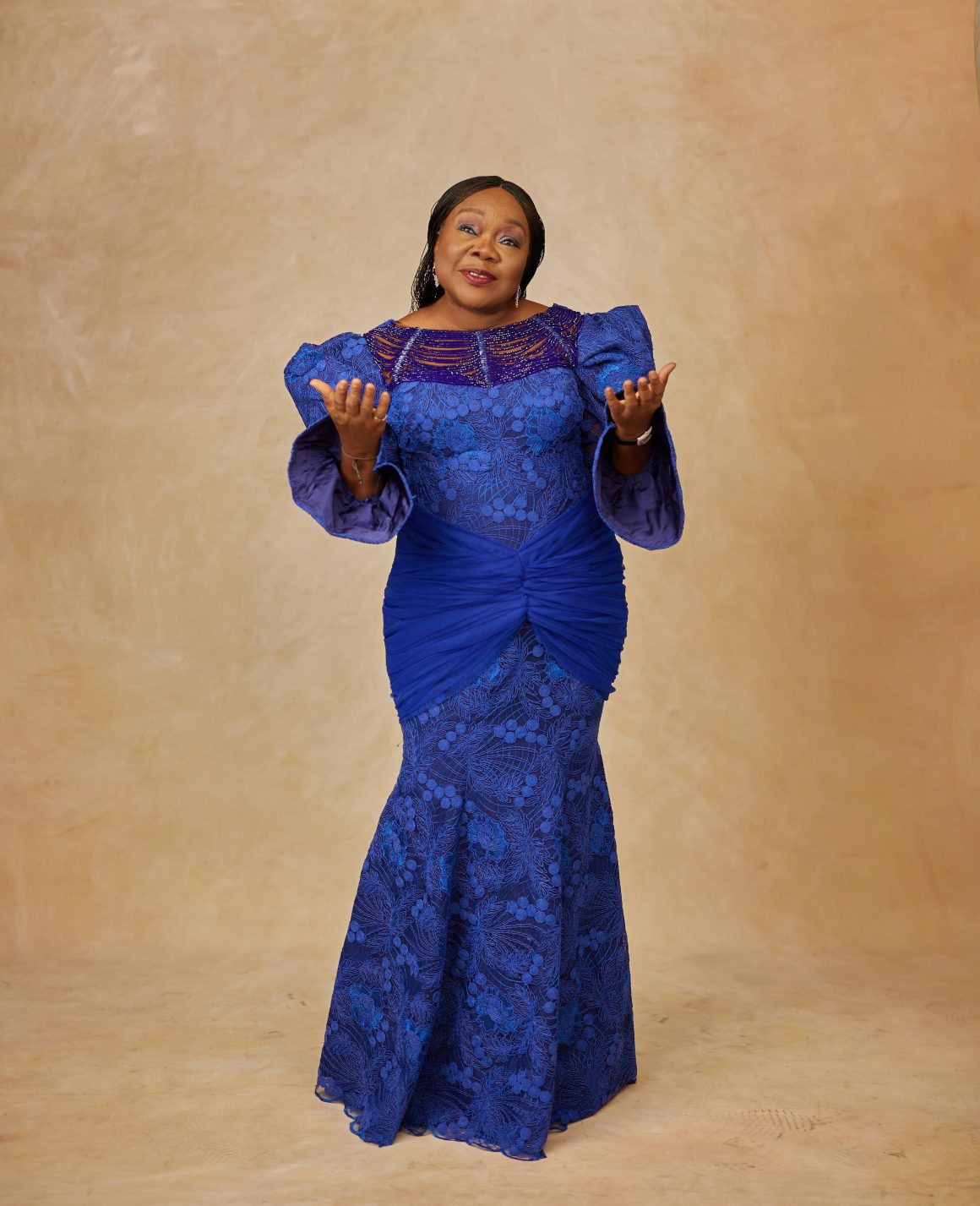
What is your message to women in positions who don’t know or understand how important it is for women to support women?
Look around closely and see who’s suffering, who needs help, and who is at the bottom of the pyramid. How do you bring them to the top of the pyramid because you need to take them there? Sit down to do that arithmetic or that self-analysis. You will find that women, according to the United Nations, are among the poorest of the poor, and they and their children are entering poverty because we now have what they call generational poverty, and that is very dangerous for any society. It means that it has become so endemic that eradicating it is a tall order, and it is only women who control this aspect of life. So, if we don’t empower women, society crumbles. When you, as a woman, find yourself in a place of empowerment, be happy that you are empowered, and remember to look down from where you are. Yes, you must develop other women and form a network of women who keep lifting each other up. This is called sustainable development.
What is your message to the men?
Support the women. Be a part of us; we can’t do it without you.

